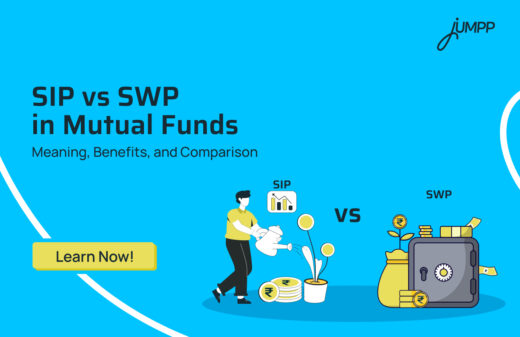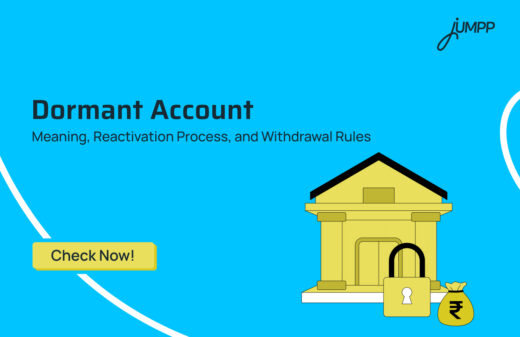ETF vs Mutual Fund: Where Should You Invest Your Money in 2026?

When it comes to investing in India, “Mutual Fund Sahi Hai” is a line we have all heard. Over the years, mutual funds have become one of the most trusted ways to invest in India. But with ETFs (Exchange-Traded Funds) becoming more popular, many investors raised new questions: ETF vs Mutual fund – what’s the difference? Should I stay with mutual funds? Should I switch? Are ETFs better?”
To help you make an informed decision, this blog covers the key differences between mutual funds and ETFs, as well as the various types available in India!
ETF vs Mutual Fund: What’s the Difference?
| Feature | Mutual Fund | ETF (Exchange-Traded Fund) |
| What it is | Professionally managed pooled fund | An index-based fund traded like a stock |
| How you buy | Through AMC or distributor at day-end NAV | Through the stock exchange at the market price |
| Price Movement | NAV updates once a day | Price changes throughout the trading day |
| Management Type | Active or passive | Mostly passive |
| Minimum Investment | SIPs start from ₹100 | Requires buying at the market lot price |
| Costs (Expense Ratio) | Higher (management fees) | Lower (index tracking) |
| Liquidity | Redeemable at NAV, takes 1–3 days | High liquidity; instant buy/sell on the exchange |
| Best For | Beginners wanting guided investing | Investors wanting low-cost, flexible trading |
| Returns Depend On | Fund manager performance + market | Index performance + market |
| Ideal Time Horizon | Medium to long term | Medium to long term |
| Taxation | Same as equity/debt mutual funds | Same as equity if equity ETF |
| SIP Option | Available | Not available directly (can use SIP in ETF via brokers)* |
What is an ETF (Exchange Traded Fund)?
An ETF is a type of fund that holds a collection of stocks, bonds, or other assets. It tracks an index like the Nifty 50, Sensex, or sector-based indices. You can buy and sell ETFs directly on the stock exchange during market hours, just like you trade stocks.
If you want to invest in the top 50 companies in India, you can simply buy a Nifty 50 ETF like Nippon India Nifty 50 ETF. It gives you exposure to all those companies in one single unit.
Types of ETFs in India (2026)
There are several types of ETFs you should know about!
| ETF Type | Meaning |
| Equity ETFs | Invest in stocks of companies across indices, sectors, or market caps. |
| Bond / Fixed-Income ETFs | Invest in government bonds, corporate debt, or other fixed-income securities. |
| Commodity ETFs | Invest in physical commodities such as gold, silver, oil, or agricultural products. |
| Real Estate ETFs | Invest in real estate companies or REITs to offer exposure to the property market. |
| Speciality / Thematic ETFs | Invest in specific sectors or themes like technology, clean energy, banking, or ESG. |
ETFs are investment funds traded on stock exchanges that combine features of mutual funds and stocks.
What is a Mutual Fund?
A Mutual Fund also collects money from investors and puts it into stocks, bonds, or a mix of both. However, in most cases, a fund manager actively selects the stocks. You do not trade mutual funds on the stock exchange. You invest through an AMC (such as SBI, HDFC, or ICICI) or via apps/platforms.
Example
Suppose you invest ₹10,000 in an equity mutual fund.
The fund manager could invest this combined capital in companies such as Reliance Industries, Infosys, and HDFC Bank, thereby spreading risk across multiple stocks.
Your returns depend on the performance of these investments and the manager’s skill.
How It Works:
- You invest in units of the mutual fund.
- The price you pay or receive when buying or selling units is based on the Net Asset Value (NAV) calculated once a day after market hours.
- Mutual funds often offer SIPs (Systematic Investment Plans), enabling you to invest small amounts regularly.
Types of Mutual Funds in India (2026)
The Securities and Exchange Board of India (SEBI) classifies mutual funds into several categories based on asset class, investment goals, and structure
| Category | Types of Mutual Funds |
| By Organisation Structure | Open-Ended Funds, Closed-Ended Funds, Interval Funds |
| By Portfolio Management | Active Funds, Passive Funds (Index Funds, ETFs) |
| By Investment Objective | Growth Funds, Income Funds, Liquid Funds, Overnight Funds, Money Market Funds, Tax-Saving Funds (ELSS) |
| By Underlying Portfolio | Equity Funds, Debt Funds, Hybrid Funds, Multi-Asset Funds, Gold Funds, Money Market Funds |
| Thematic / Solution-Oriented | Retirement Funds, Children’s Funds, Arbitrage Funds |
| Other Categories | Fund of Funds (FoFs), Overseas Funds |
1. Equity Mutual Funds
These funds invest primarily in stocks and are suitable for investors seeking long-term capital appreciation.
- Large-Cap Funds: Invest in large, well-established companies.
- Mid-Cap Funds: Focus on medium-sized companies with potential for growth.
- Small-Cap Funds: Target smaller companies with higher growth potential but greater risk.
- Multi-Cap Funds: Diversify across large, mid, and small-cap stocks.
- Sectoral/Thematic Funds: Invest in specific sectors like technology or healthcare.
2. Debt Mutual Funds
These funds invest in fixed-income securities and are ideal for conservative investors seeking regular income.
- Liquid Funds: Invest in short-term instruments that offer high liquidity.
- Short Duration Funds: Invest in instruments with shorter maturity periods.
- Corporate Bond Funds: Focus on high-rated corporate bonds.
- Gilt Funds: Invest in government securities, carrying minimal credit risk.
3. Hybrid Mutual Funds
Hybrid funds combine equity and debt investments, balancing risk and returns.
- Aggressive Hybrid Funds: Higher equity exposure for growth.
- Conservative Hybrid Funds: Higher debt exposure for stability.
- Balanced Advantage Funds: Dynamically adjust equity-debt allocation based on market conditions.
Want an easier way to manage your SIPs and track funds? Check out the best mutual fund app.
4. Solution-Oriented Funds
Designed for specific goals like retirement or children’s education, these funds have a lock-in period and are structured to meet long-term objectives.
5. Other Mutual Funds
- Index Funds: Track a specific market index like the Nifty 50.
- Fund of Funds (FoFs): Invest in other mutual fund schemes.
- Exchange-Traded Funds (ETFs): Trade like stocks on exchanges and track indices or sectors.
ETFs vs Mutual Funds: Pros and Cons
| ETFs | Mutual Funds | |
| Pros | – Lower expense ratios – Real-time trading during market hours – Transparent portfolio (daily disclosure) – Generally more tax-efficient | – Easy to start with small amounts – SIPs available – Professionally managed – Suitable for beginners |
| Cons | – No native SIP feature – Requires monitoring market prices – Can trade at a premium/discount to NAV | – Higher fees (especially active funds) – Priced only once per day – Less control over buy/sell timing |
Not sure whether to invest or just save? Understand the difference between Savings vs Investment now!
Both investment vehicles offer diversification and can be selected based on individual financial goals, risk tolerance, and investment horizons.
ETFs vs Mutual Funds – Which One Should You Choose?
- Long-Term, Hands-Off Investor: Mutual funds are great if you want professional management, easy SIP options, and don’t mind paying a slightly higher fee for active management.
- Cost-Conscious, Active Trader: ETFs suit investors who want to buy and sell during market hours, pay low fees, and track the market index closely.
Final Thoughts
Both ETFs and Mutual Funds offer unique advantages. Your choice should align with your investment goals, risk tolerance, and convenience preferences. It’s advisable to assess your financial objectives.
Ready to invest in ETFs or Mutual Funds? jUMPP start your journey with one of the best investment apps!
Disclaimer: Investments in the securities market are subject to market risks; read all the related documents carefully before investing.
Difference Between Mutual Fund and ETFs- FAQs
ETFs usually have lower costs and trade like stocks, offering flexibility. Mutual funds are actively managed and may suit investors looking for professional management.
Some popular ETFs in India track the Nifty 50, Sensex, or gold. The best ETF depends on your goal—like Nifty Bees for equity or Gold ETF for gold exposure.
It is very unlikely for a well-managed ETF to become zero, but the value can go down if the underlying assets lose value.
Yes, some ETFs distribute dividends if the underlying stocks pay dividends.
Yes, you can sell ETFs anytime during market hours since they trade like stocks.
ETFs are generally safe for the long term if you choose broad market or index ETFs, but like all investments, they carry market risks.
ETFs may not be good if you want active management or if trading costs outweigh the benefits for small investors.
No, ETFs are not tax-free. Equity ETFs have tax rules like equity mutual funds. Debt ETFs follow debt fund tax rules.
Source- amfiindia.com






